Spartacus (1960)
“When just one man says, ‘No, I won’t,’ Rome begins to fear.”
|
Synopsis: |
|
Genres, Themes, Actors, and Directors:
Response to Peary’s Review: … “a superlative supporting cast headed by Jean Simmons as the slave girl Varinia (Spartacus’s lover)”: … “andLaurence Olivier as the Roman Crassus (Spartacus’s mortal enemy), [and] an outstanding battle sequence.” He notes that “this is one of the few epics in which we’re not bored when characters are talking,” adding that “the palace-bath chats between Olivier, John Gavin (as Julius Caesar), Charles Laughton, and the other shrewd Romans are amusing not only because they reveal political motives for wanting Spartacus and his memory destroyed but also because there are strong intimations of homosexuality.” However, “the film’s major distinction is that its script, adapted from Howard Fast’s novel by Dalton Trumbo” (in his first credited post-blacklist film) “has a genuine revolutionary spirit, reflected in Douglas’s speeches to his followers” — and “Trumbo also establishes, through Crassus, the nature of a fascist.” Peary notes numerous highlights from the film, including “Douglas being forced by his Roman captors to fight to the death with fellow slave Woody Strode”: … “Laughton and slave dealer Peter Ustinov having a gluttonous meal together”: … “Simmons’s nude swim”: … “the fireballs being shot at the beginning of the great battle”: … “and the fictional final scene in which the Romans try to determine which of the captured revels is Spartacus (they all claim to be).” I’m essentially in agreement with Peary’s review, though the film feels a bit long at 3+ hours, and one definitely misses (or at least wonders about) the lack of Kubrick’s distinctive touch. However, the battle sequences are truly impressive, and the storyline effectively portrays Ancient Rome from multiple perspectives — not just those in power. Notable Performances, Qualities, and Moments:
Must See? Categories
(Listed in 1001 Movies You Must See Before You Die) Links: |
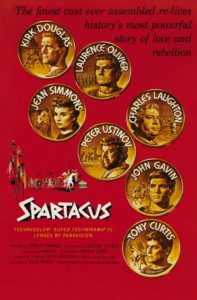
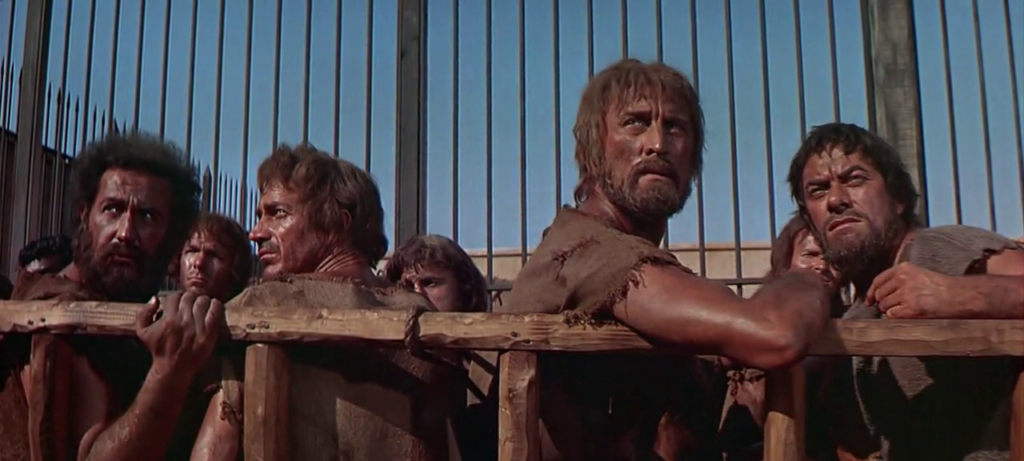
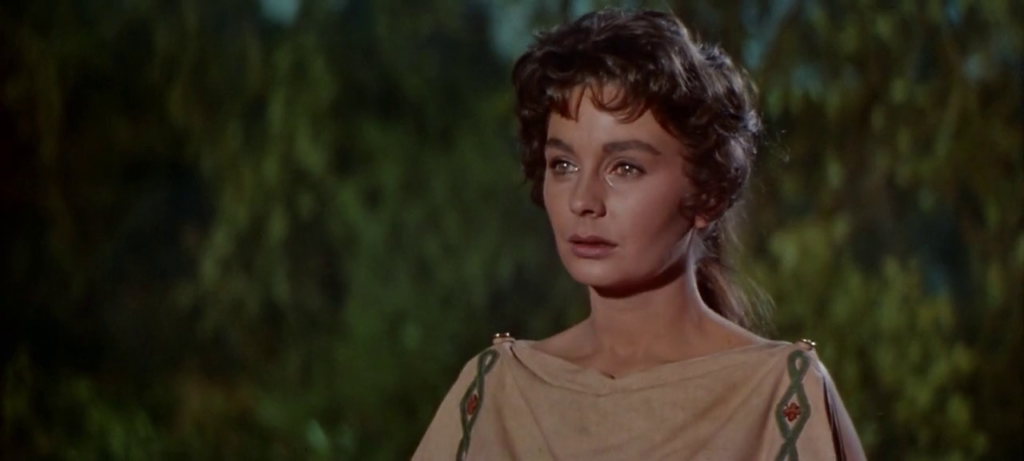
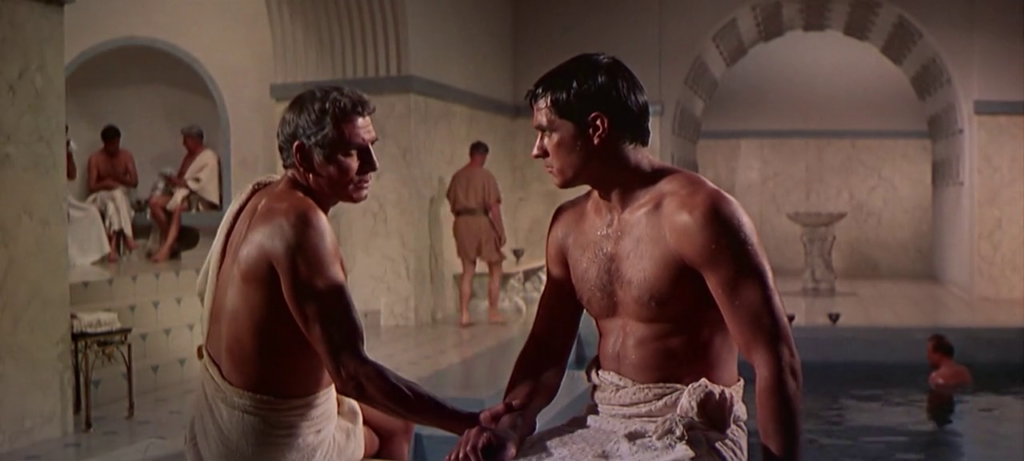
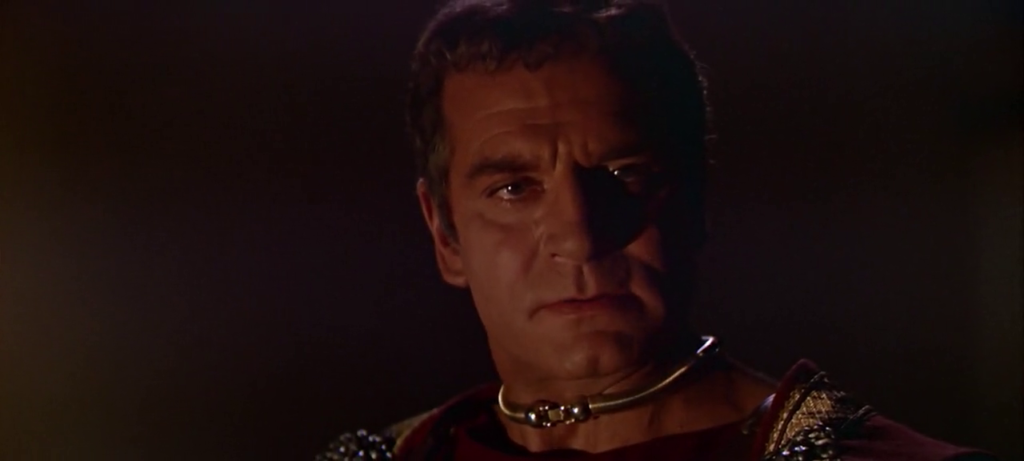
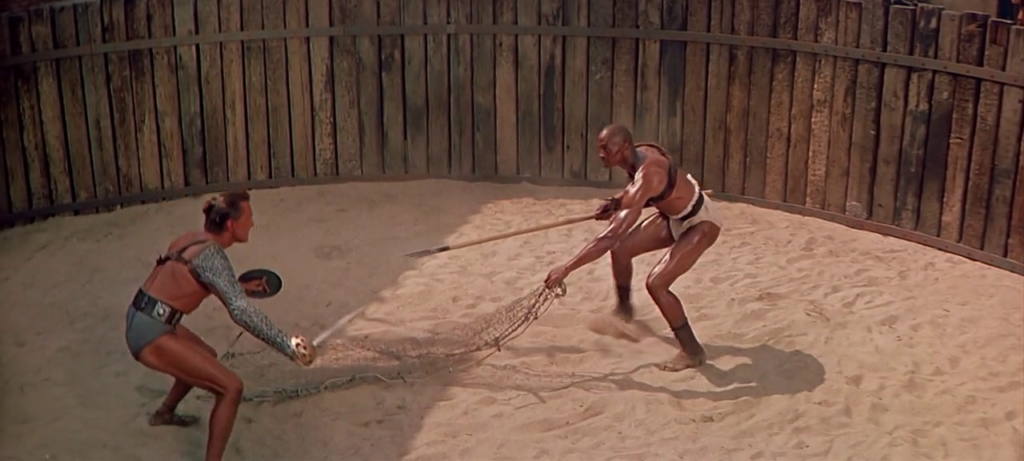
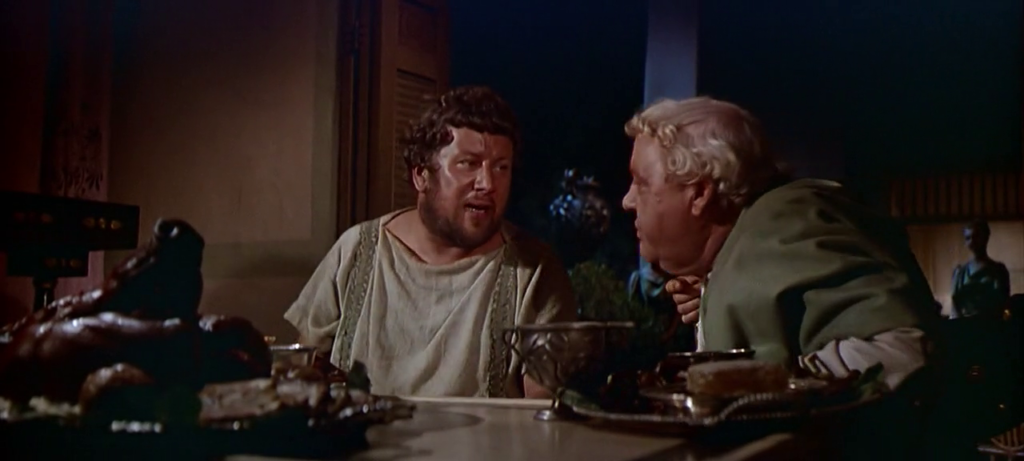
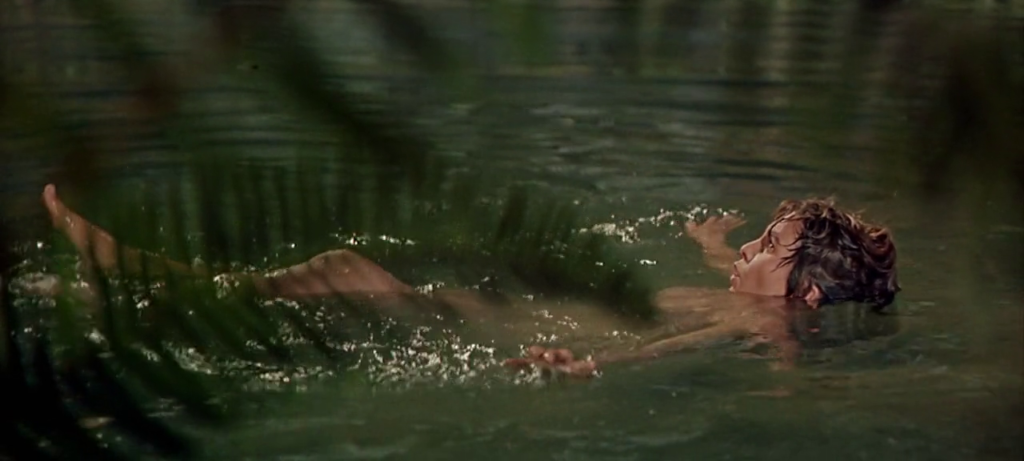
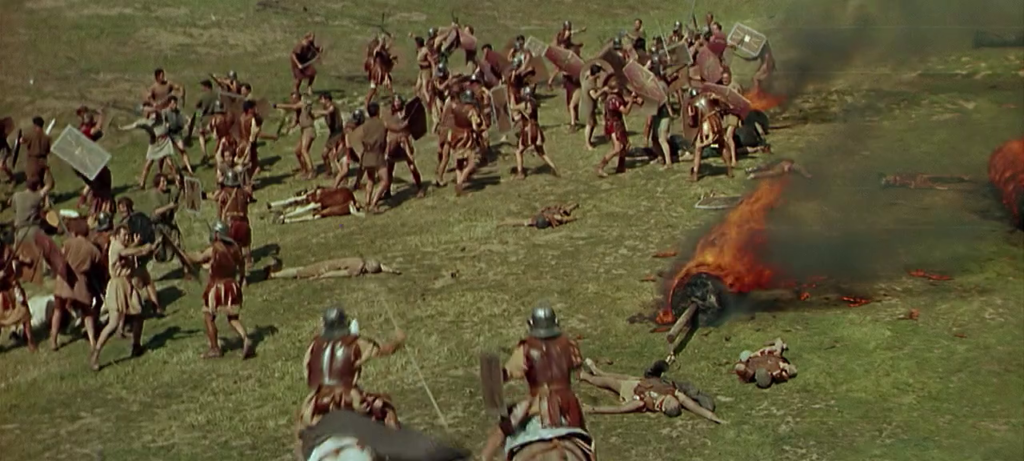
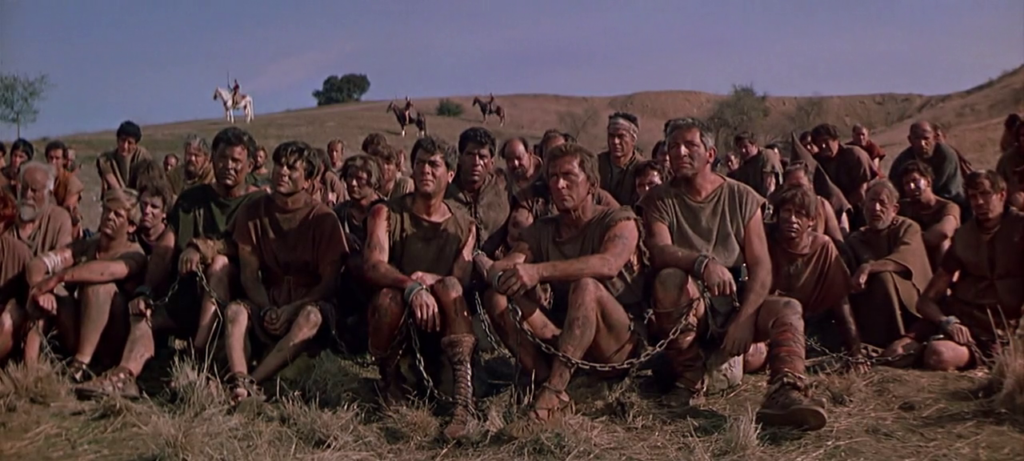
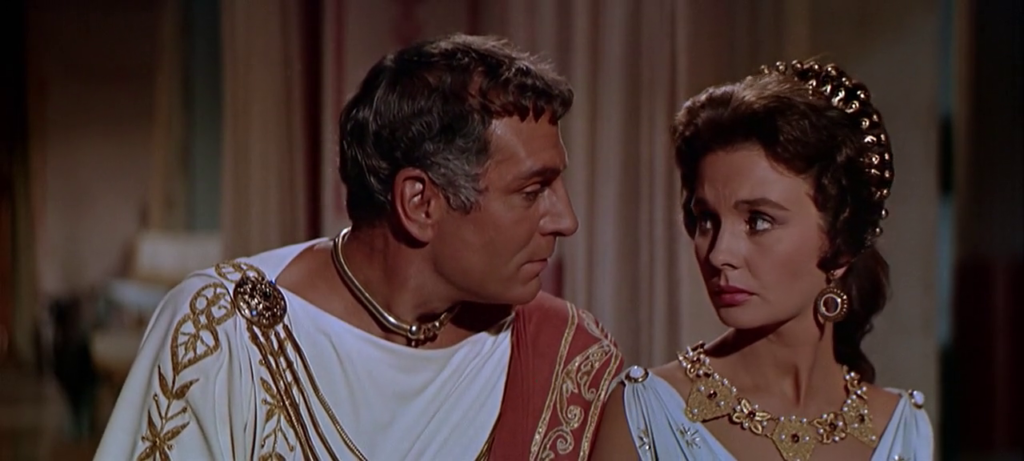
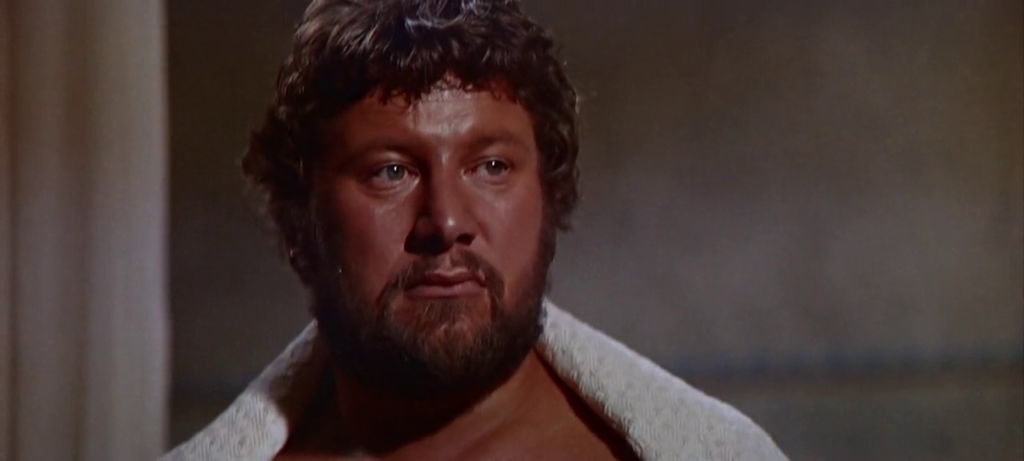
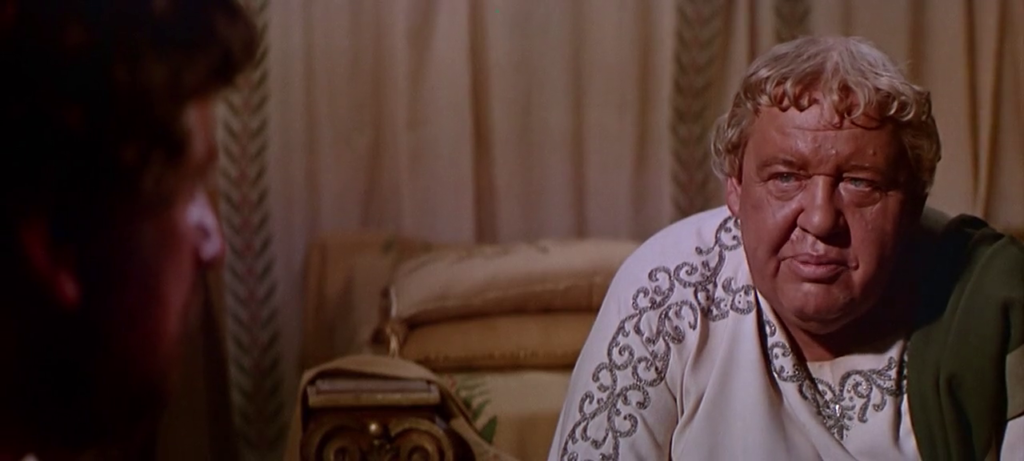
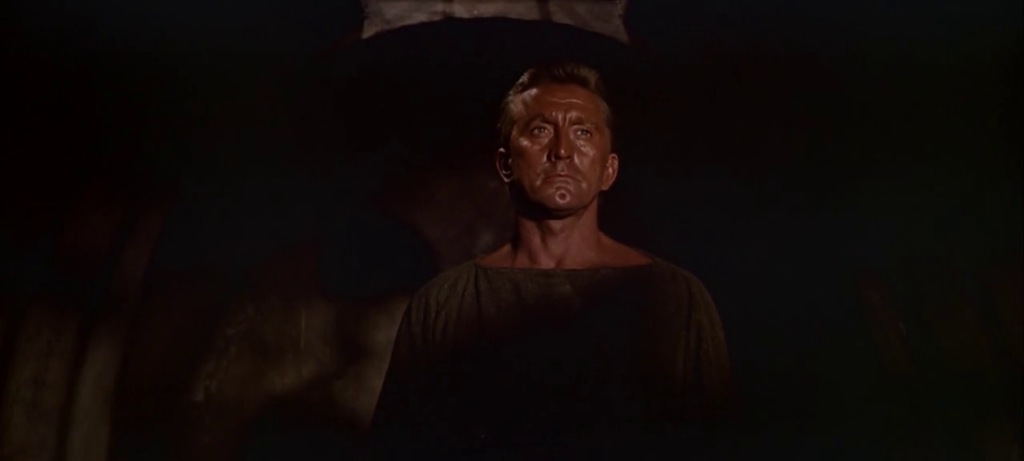
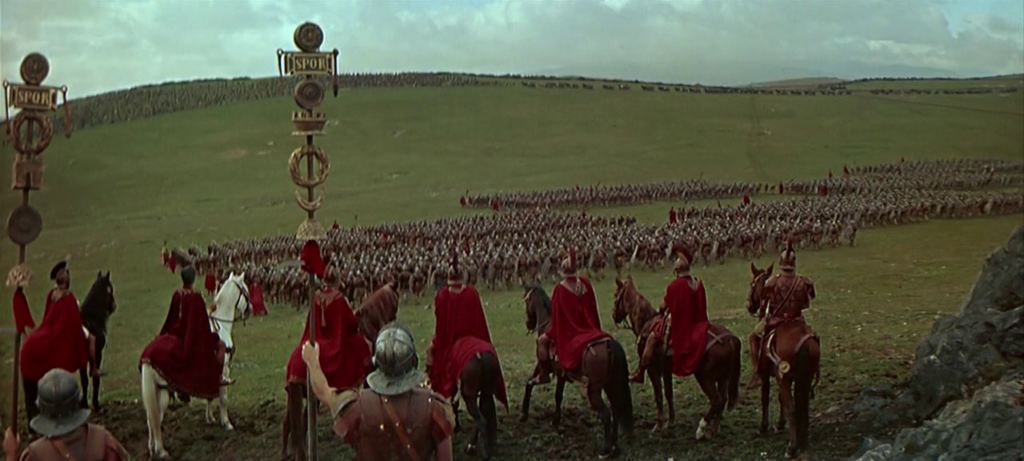
One thought on “Spartacus (1960)”
Rewatch 5/16/22. A once-must, for its place in cinema history. As posted in ‘The ’40s-’50s in Film’ / a cusp film (fb):
“There’s only one way to deal with Rome, Antoninus. You must serve her. You must abase yourself before her. You must grovel at her feet. You must… love her.”
‘Spartacus’ (1960): I realized that I had little memory of this cusp film – so I wasn’t sure if I had seen the whole thing. (The link I provide is to the 2015 restoration – which added 12 minutes to the existing film.) It’s better than I anticipated (well, considering Stanley Kubrick didn’t think much of his director-for-hire status and held the film in less regard, though he did help with the restoration).
I wish I had a much better command of history. Does this story really take place 2,000 years before the birth of Christ?! So, was that 2,000 more years of this kind of dominance by Rome?! My mind spins.*
Watching the film, all I could think of was modern-day Republicans. They seemed to be everywhere in this story. That gave texture to Kirk Douglas’ remark at one point: “Maybe there’s no peace in this world – for us or for anyone else, I don’t know.” That’s small comfort indeed – but it helps explain the cyclical nature of evil rearing its ugly head; it’s never far from us and always an impediment to progress and the progressive spirit. We just forge ahead, regardless.
(I couldn’t help but hear the awful voice of Lindsey Graham when Charles Laughton responds to being asked about his belief in the gods: “Privately I believe in none of them. … Publicly I believe in them all.”)
Like some other epic films of the period, ‘Spartacus’ seems to have a tone in its second half that seems a bit lethargic – after a rather strong, compelling first half. But it’s shot majestically and has a fine score by Alex North.
It also benefits from what seems a suggestion on Kubrick’s part that the cast underplay their roles – esp. Douglas and Laurence Olivier, two actors who have often needed to be told to… do less on-screen.
Oscars went to: Art direction, DP Russell Metty, Costume Design – and the wonderful supporting performance by Peter Ustinov. ‘Spartacus’ received a Golden Globe for Best Picture.
*In comments, group members gave me clarification about the time frame, adding that it doesn’t seem clear-enough in the film.